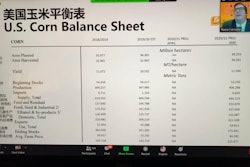
The American Coalition for Ethanol (ACE) CEO Brian Jennings calls recent requests for the Environmental Protection Agency (EPA) to waive or significantly reduce the Renewable Fuel Standard (RFS) Renewable Volume Obligations (RVOs) unjustified, including a letter sent yesterday from 15 Republican Senators and similar requests from a handful of governors and attorneys general.
Jennings released the following statement in response to the multiple attempts to blame the RFS and renewable fuels for the recent economic downturn:
“None of the requests from governors, senators, and attorneys general for EPA to waive the RFS this year have been accompanied by the evidence, which is required by the law and previous precedent, showing how the RFS is the cause of ‘severe economic harm’ because such evidence does not exist.
“More importantly, oil refiners and the politicians beholden to them who keep calling on EPA to reduce RFS blending obligations for 2020 due to the coronavirus pandemic are disingenuously ignoring the fact that ethanol blending is already falling below statutorily-required levels this year with no action by EPA because COVID-19 has cut U.S. motor fuel use by approximately 50 percent in recent months.
"If EPA were to cave in to requests for an unjustifiable RFS waiver, it would amount to a dual cut to renewable fuel use, giving refiners further license to escape their legal responsibility to blend and inflicting gratuitous pain on ethanol producers and farmers.
“The ongoing freefall in ethanol use as a result of the economic fallout of COVID-19 is what promptedACE to write Administrator Wheeler on April 3, pressing EPA to increase blending obligations for 2020 to avoid violation with the statute which instructs the Agency to set the RFS at a level that ‘ensures the requirements’ of the RFS are met.
'We have called on EPA to issue an interim final rule by July 1 to increase the 2020 RVO to ensure the full 20.09 billion gallons required by law are used. In addition, our April 3 letter asks EPA to restore the 500 million gallons of remanded volume as ordered by the D.C. Circuit Court in 2017 and comply with the recent Tenth Circuit Court decision to limit existing and future small refinery exemptions under the RFS.”





















